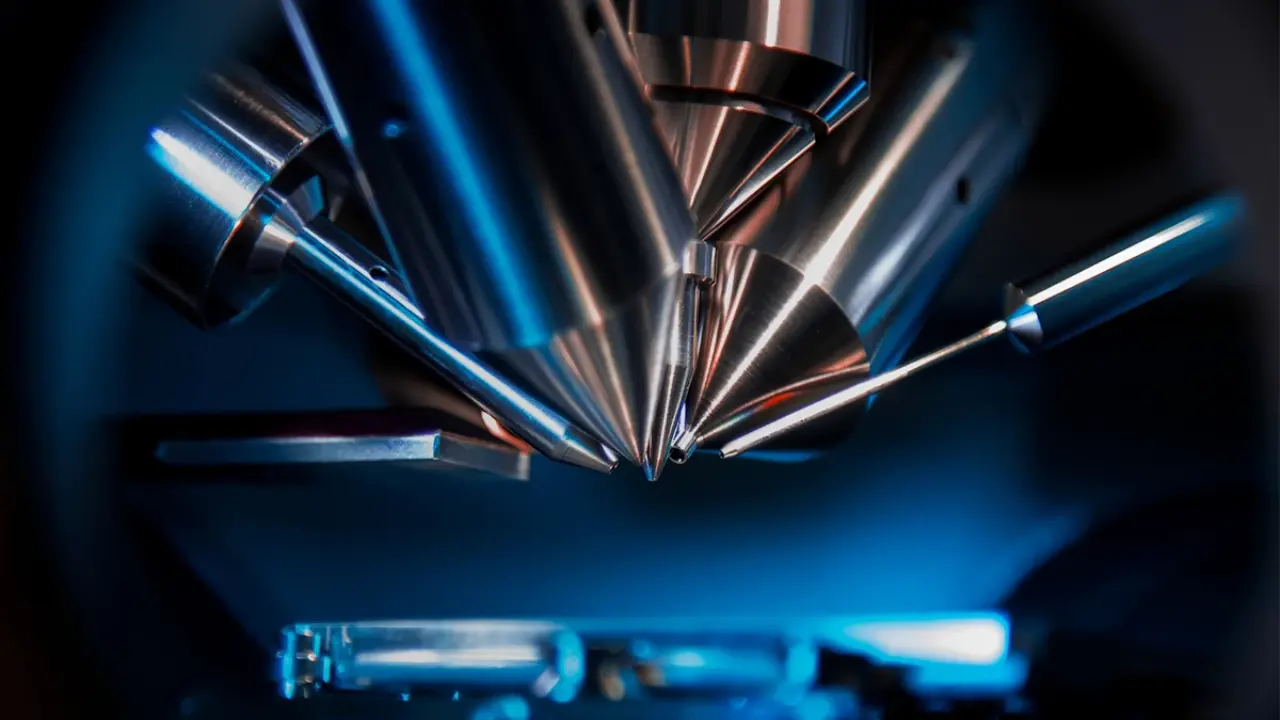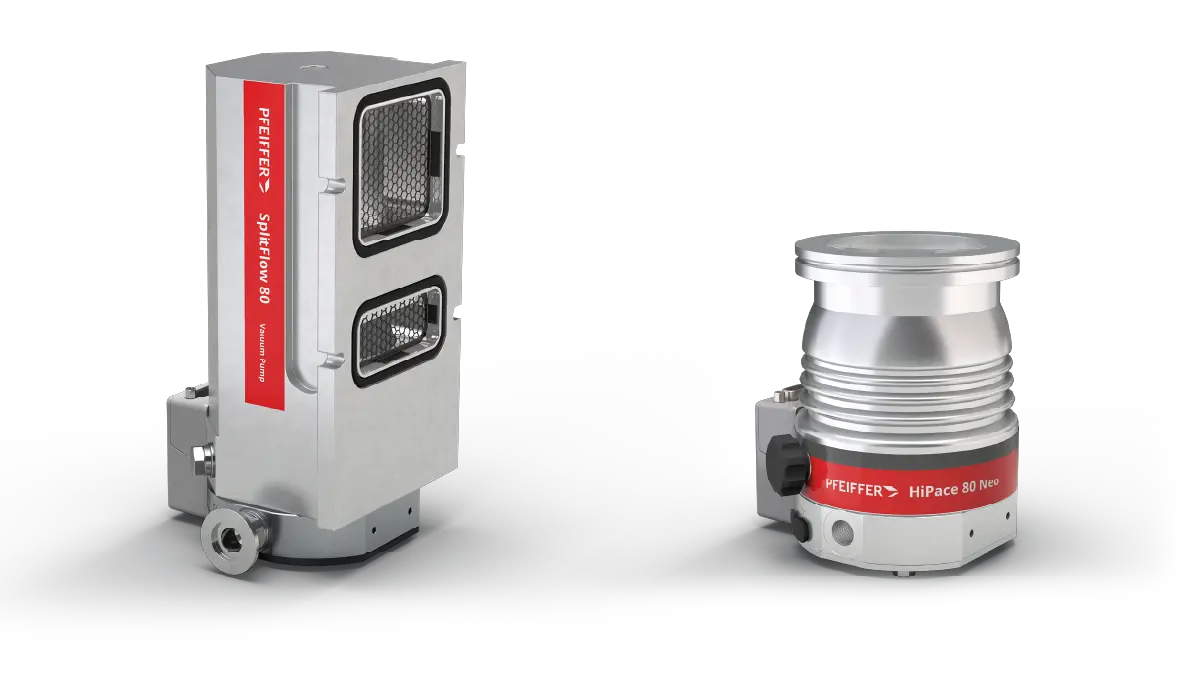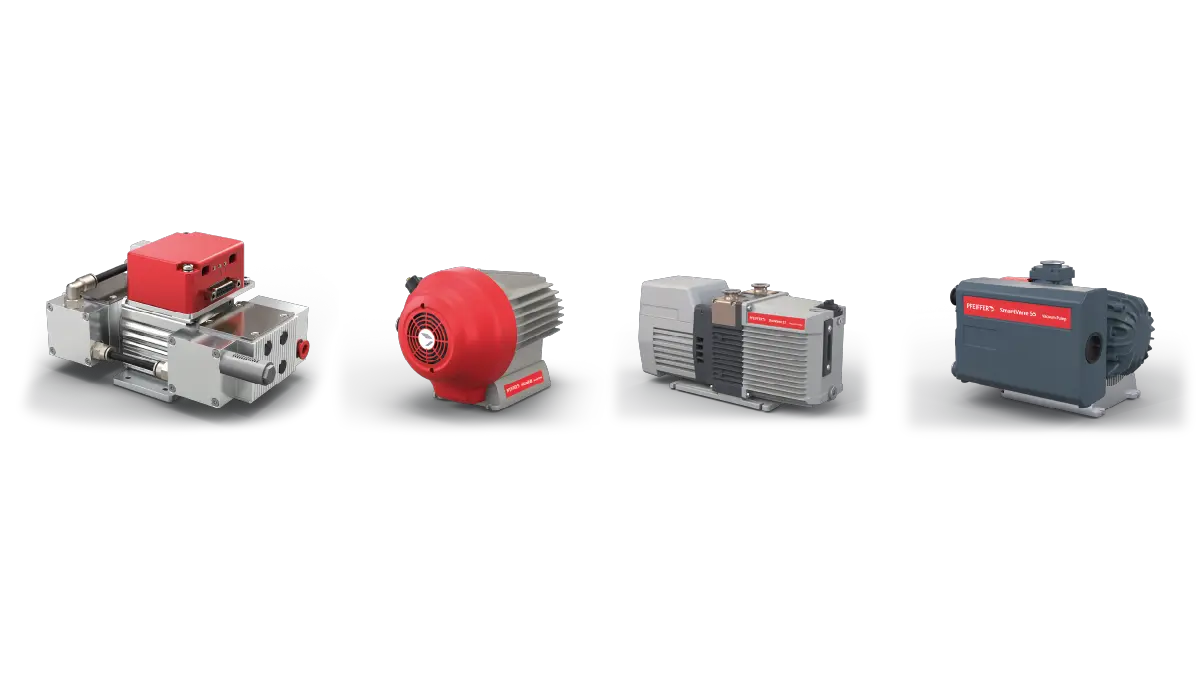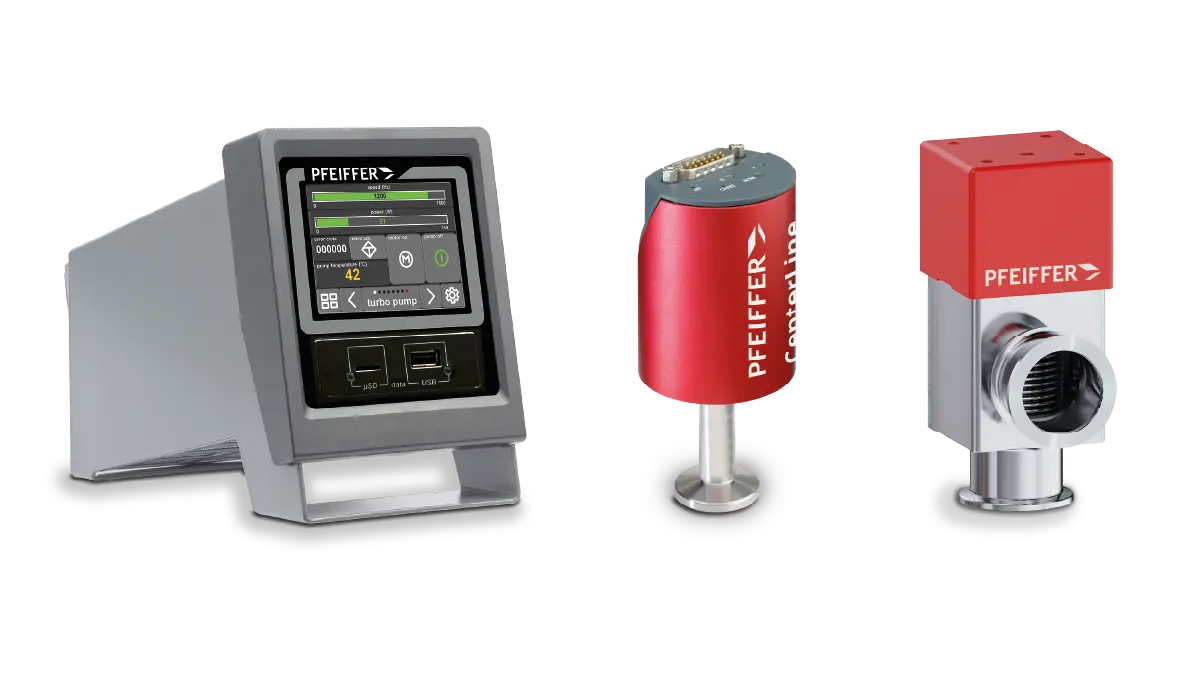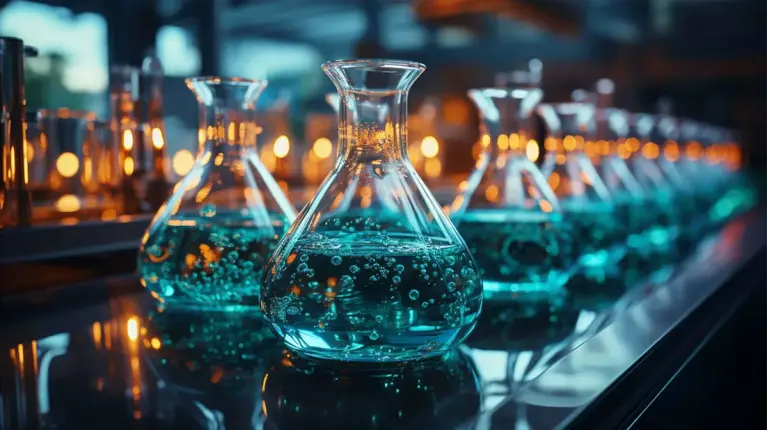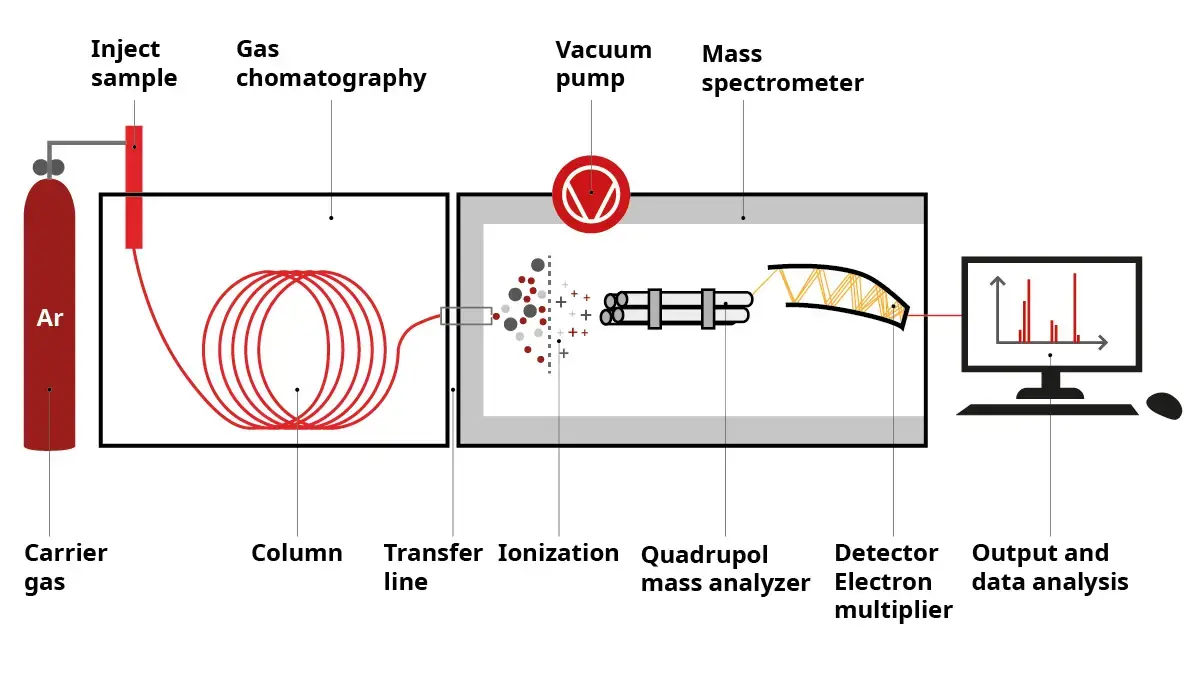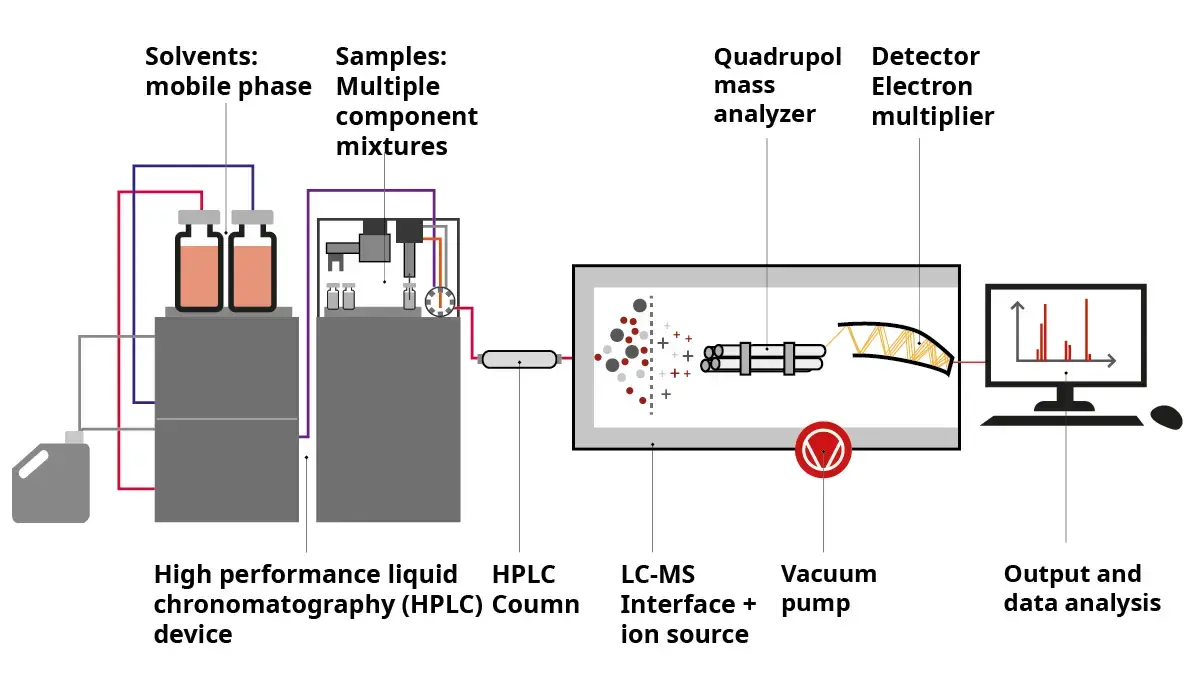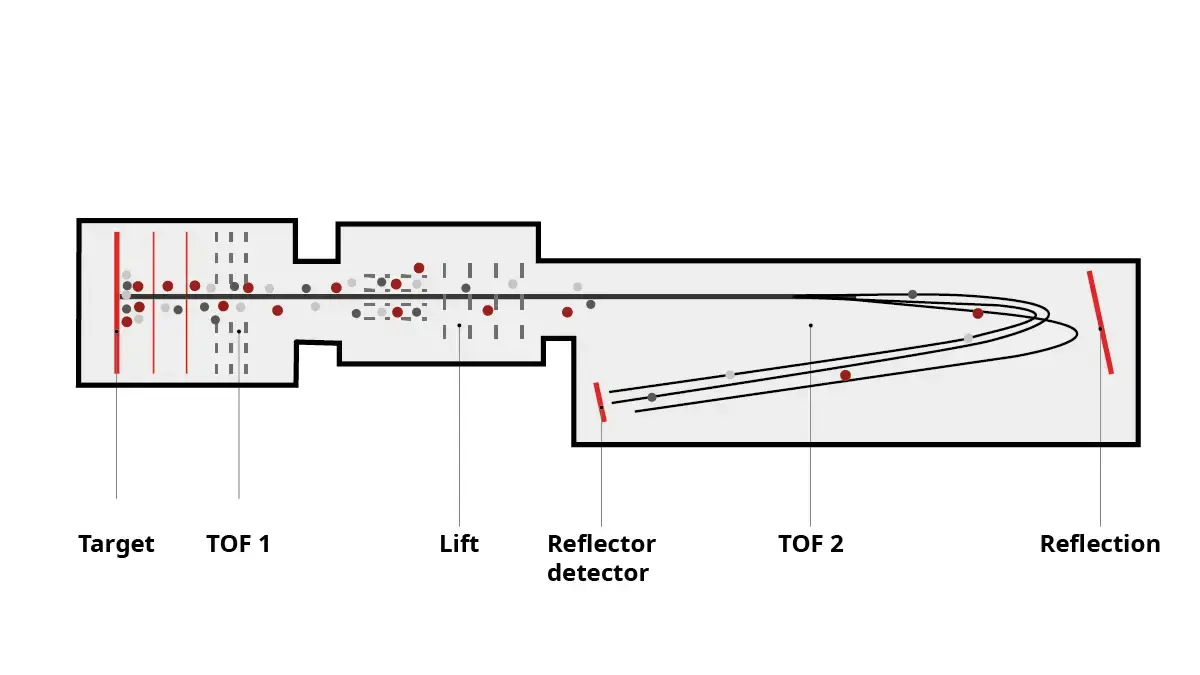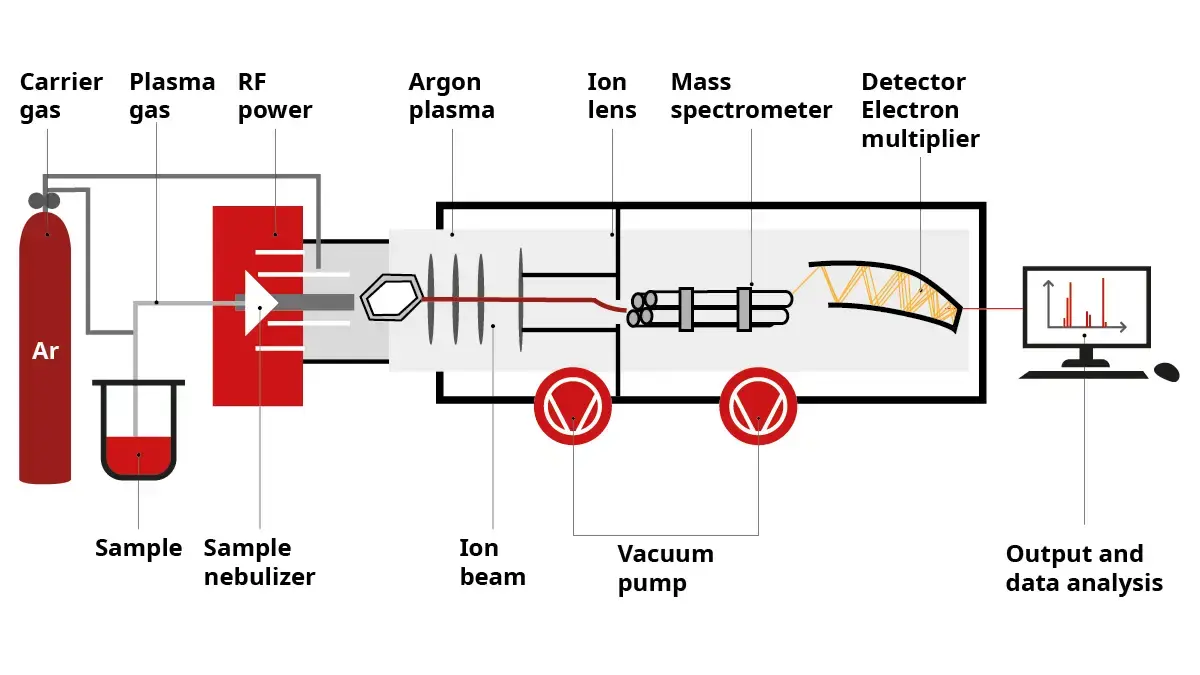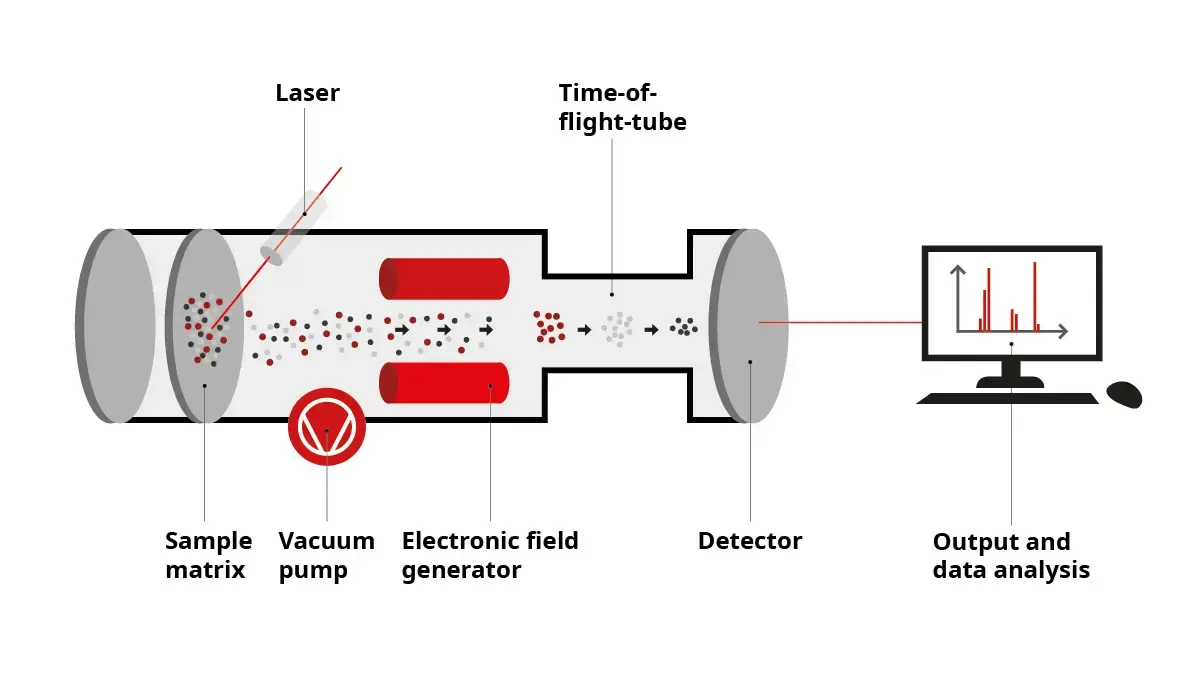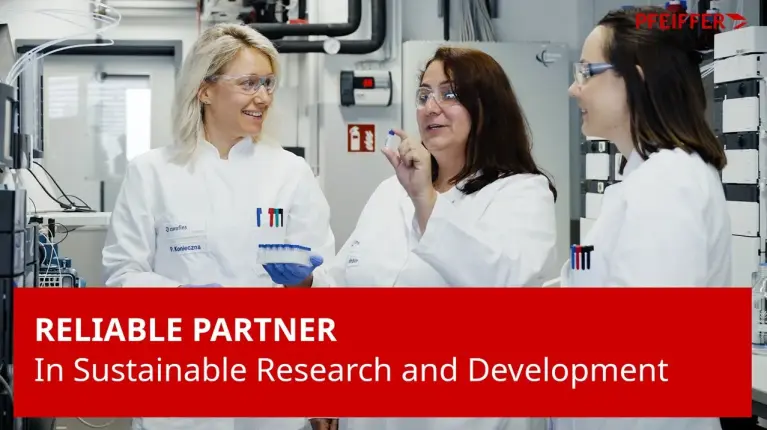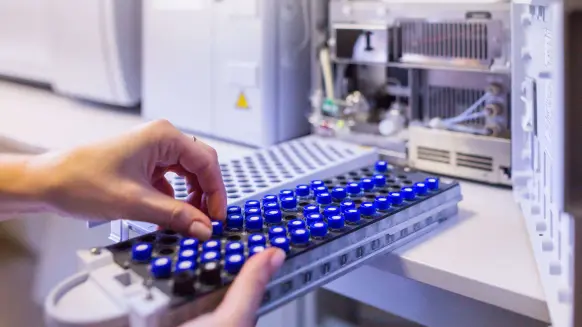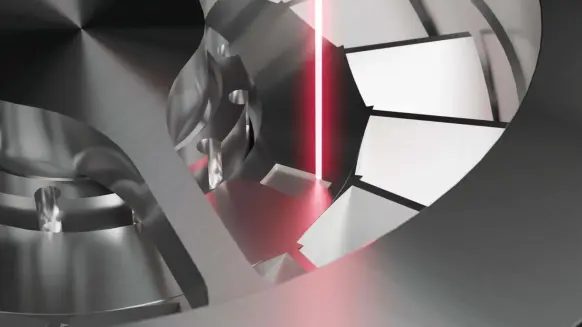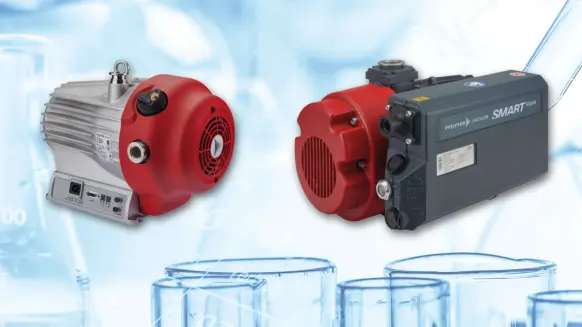The role of vacuum in mass spectrometry
In mass spectrometry, vacuum is crucial for allowing ions to travel through the system without interference from air molecules. Each stage of the instrument – from ion source to mass analyzer and detector – requires specific vacuum levels to ensure accurate ionization, effective mass separation, and minimal background noise.Maintaining these distinct pressure stages is not a simple on-off function; each level must be precisely controlled. For instance, the ionization stage requires a carefully regulated pressure for efficient ion creation, while the mass analyzer depends on ultra-low pressures for uninterrupted ion movement.
High vacuum pumps are normally integrated within the system design, supported by external backing pumps. Gauges and intelligent controllers are critical to ensure the vacuum remains stable throughout operation, delivering the consistent performance users demand.
